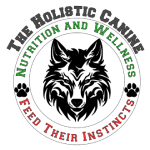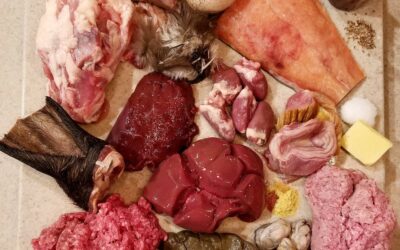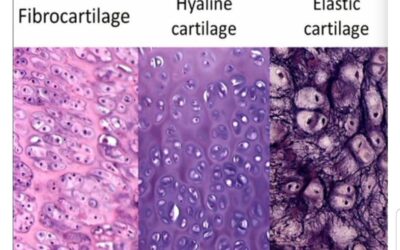The Importance of Methylation in Canine Health & Disease Prevention
Cellular methylation is an epigenetic mechanism that affects (controls) gene expression in animal cells and is responsible for the body’s most complex and vital processes. In other words, methylation turns genes on and off which directly affects DNA thereby playing a primary role in health and disease prevention. In my article entitled Dis-ease Prevention through Epigenetic Gene Expression, I discussed how DNA gene expression can be directly affected via diet and environment for the prevention of disease and premature aging. Methylation is one such epigenetic mechanism that science is revealing. In addition to gene expression, methylation assists in processing cellular toxins and hormones for adequate cellular detoxification. It also aids in both the manufacture and catabolism (breakdown) of neurotransmitters. It is not difficult to recognize the importance of maintaining adequate cellular methylation in both us and our pets. Epigenetic science may just be THE missing link to the prevention of disease and slowing the aging process.
In another article I had written on the microbiome (The Mystifyingly Astounding Microbiome), I expressed how the nurturing of healthy and flourishing gut microorganisms plays a pivotal role in the cultivation of optimal health and immunity. Accordingly, it should not be surprising that ideal cellular methylation is connected to gut health. Cultivating a microbiome that resembles a rainforest teeming with tens of thousands of symbiotic species coupled with taking active measures to improve cellular methylation are necessary ingredients for the nurturing and maintenance of optimal health and healing, disease prevention, and the prevention of premature cellular aging in our dogs.
Cellular methylation requires two critical components that need to be in adequate supply. These include folate (part of the B vitamin group) and s-adenosylmethionine (SAMe). Folate can be manufactured by healthy colonic microbiota (microbiome), but not in a sufficient amount; therefore, it needs to be supplied in and through the diet. SAMe is manufactured from the amino acid methionine and adenosine triphosphate (ATP) in sufficient amounts provided an adequate amount of methionine-containing protein sources are consumed regularly. SAMe’s role in methylation is to donate its methyl group. It is also essential for the formation of neurotransmitters, a process that requires the assistance of methylation. Thus it can be seen how correct functioning of the cells cannot be understated in this interdependent relationship.
Folate is far more complex. Folate is a metabolic cofactor as well as a dietary nutrient. Folate requires a reduction process via what is known as the folate methylation pathway. This pathway reduces dietary folate (and synthetic folic acid) to 5-MTHF (methylenetetrohydrofolate) for its methyl donation to the DNA methylation process. An undisrupted folate reduction pathway is critical for a consistent flux of available methyl groups. Disruptions within the folate methylation pathway, unfortunately, can and do occur which often leads to a build-up of toxins in the bloodstream and tissues. Disruptors include prescription drugs, environmental and food chemical exposures, veterinary preventative chemicals, synthetic folic acid in commercial dog foods, processed food diets, or genetic mutation, to name a few. Disruption creates a deficiency in methylfolate. This then snowballs into a deficiency of glutathione, the body’s master antioxidant, leading to a toxic state and the inability to create coenzyme Q10, neurotransmitters, nitric oxide, L-carnitine, cysteine, and taurine. These are critically important to cellular and heart health in the modern canine (and humans!). It is worth mentioning that modern canines are experiencing a rapid increase in the incidences of heart disease, specifically DCM (dilated cardiomyopathy), and cancer. Perhaps there is a relation? That is my theory!
Additional nutrients needed for optimal methylation are zinc, vitamin D3, riboflavin (B2), magnesium, pyridoxine (B6), and methylcobalamin (B12).
Causes for defective methylation include:
- poor diet (especially processed commercial foods)
- chemicals (flea/tick/heartworm preventatives, wormers, pesticides, air-born toxins in home and outdoor air, etc)
- prescription drugs (especially antibiotics, acid blockers, corticosteroids, nitrous oxide, methotrexate, etc)
- giving niacin supplements or B-complex vitamins (notably synthetics)
- heavy metals (vaccines especially)
- anxiety and stress
Conditions associated with methylation disruption:
- autoimmune disorders
- cancer
- heart disease and conditions
- anxiety
- hyperactivity
- chronic viral infections
- canine OCD
- thyroid disease
- canine neuropathy
- canine cleft palate
- canine miscarriage
- neurological disease and conditions
An adequate species-appropriate diet is important, but so too is maintaining a healthy home and environment for your pets free from stressors, chemicals, confinement, lack of vital needs, and the creation of monotony/boredom.
Methylation and gut health are intermutual. Gut health begins with providing a fresh raw food diet and the regular exposure to outside air, sunlight, grass, earth/dirt, sand, and changing environments through walks, hikes, and travel. The diet should be rich in natural sources of folate, methionine, coenzyme Q10, glutathione assistants, cysteine, taurine, and all other required nutrients, cofactors, enzymes, and other species-appropriate food constituents necessary for the maintenance of canine health.
Should you begin supplementing your dog with the above nutrients? My opinion is NO unless your dog has a verifiable need. Supplementing can upset the homeostatic mechanisms your dog’s body uses to regulate itself for health and disease prevention. You cannot force the body to utilize more of what it needs. Supplements are for deficiencies, for use where the diet consistently lacks, for genetic or cellular mutations, therapeutic needs, and in disease treatment. (NOTE: Whole food supplements do not fall into this category.)
Richest Food Sources
- Folate: chicken liver, beef liver, chicken feet
- Methionine: salmon, mackerel, and all meats and eggs
- Coenzyme Q10: heart, liver
- Glutathione support (manufactured in body): Foods rich in zinc and copper maintain glutathione levels (beef liver for copper and oysters for zinc); raw eggs, raw unprocessed meat, and avocado maintain levels; asparagus is a leading source of glutathione. Milk thistle and turmeric assist in maintaining glutathione levels.
- Cysteine (manufactured in the body): meat, fish, and eggs
- Taurine (manufactured in body): fish, heart, meat, shellfish, eggs
Assisting nutrients:
- Zinc: oysters, beef
- Vitamin D: fatty fish, free range eggs
- Magnesium: bone, fish, oysters, pumpkin seeds, hemp seeds
- Riboflavin: beef, salmon
- Pyridoxine: meat, fish
- Cobalamin: liver, kidney, sardines, beef
NOTE: This is not a scientific research article, but a general information article to introduce the importance of DNA methylation.
©2019 Kimberly Lloyd, PhD, BCHHP, Cert Raw Dog Food Nutritionist



